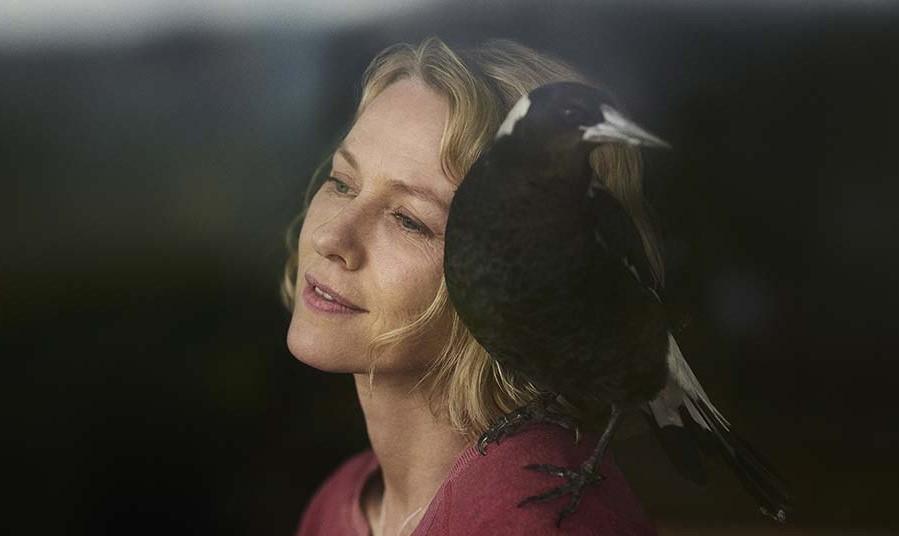Based on a true story, Penguin Bloom powerfully depicts a family struggling to come to terms with tragedy and disability. While on vacation, Sam Bloom (Naomi Watts) has an accident that leaves her permanently paralysed and in a wheelchair. The film focuses on the Bloom family as they slowly adjust to their new normal, and particularly concentrates on Sam’s struggle to accept her limitations as she becomes more isolated from her husband (Andrew Lincoln) and children. Sam’s despair is disrupted by her son adopting a young magpie that is hurt, and a bond is struck between the two characters desperate to heal themselves.
Director Glendyn Ivin manages to sensitively portray the internal struggle that Sam experiences as she learns to understand her new body and limitations as a disabled woman, wife and mother. Even more so, the film is touching in its inclusion of the everyday things that make accepting a new disability very difficult. For example, having your loved ones talk about you and your healthcare, without including you in the discussion. This is a common experience for many newly-disabled people as they lose their sense of independence and autonomy, but a fairly alien concept to most able-bodied individuals, so this inclusion of an everyday disabled experience is really impressive.
As a disabled person myself, this film was very eye-opening as I realised I had not seen disability presented in such a balanced way before. On the one hand, the film explores the very raw and destructive nature of acquiring a new disability on Sam’s sense of self. We experience the traumatic unravelling of Sam’s sense of identity and purpose as the entire Bloom family struggle to hold on to their normal lives from before the accident. In contrast to this, Ivin masterfully includes comedic and light-hearted scenes to break up the more sombre tone, thereby creating a film that depicts an incredibly authentic and realistic view of disabled life. Not just devastating and sad, but hopeful and funny at times too!
While there are many aspects of this film that I appreciate, there was one major issue I had with the film, Naomi Watts is not disabled. While the real Sam and Cameron Bloom were executive producers to the film, and their authentic experiences of disability certainly have a presence, I am critical of Ivin’s choice to cast an able-bodied actor to portray a disabled character. There are many within the disabled community that finds the continuing trend to cast leading disabled roles to non-disabled actors as deeply problematic. That being said, there still aren’t many films that centre around disabled voices and bodies, and there are so many scenes that poignantly and powerfully portray real-life for disabled people everywhere, that I believe this film is a positive contribution to the representation of disability in film.
Image Credit: Screen Daily

